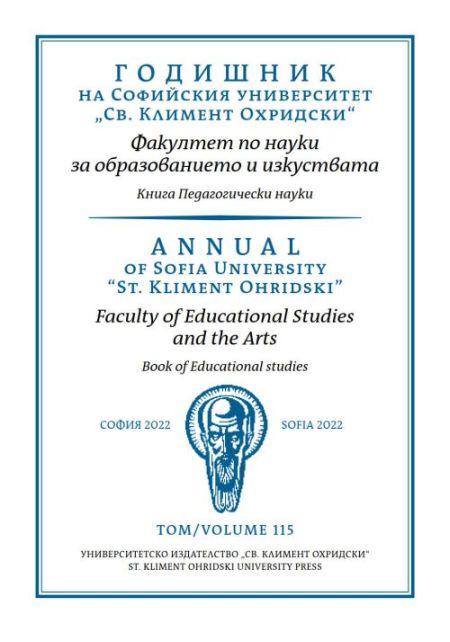Образователен модел за идентифициране и диференцирани подходи в работата с ученици със специални образователни потребности, хронични заболявания, ученици в риск и талантливи ученици в българското приобщаващо образование
Educational Model for Identification and Differentiated Approaches to Students with Special Educational Needs, Chronic Diseases, Students at Risk and Gifted Students in Bulgarian Inclusive Education
Project, Funded by Bulgarian National Science Fund
Author(s): Author Not SpecifiedSubject(s): Social Sciences, Education, Inclusive Education / Inclusion
Published by: Софийски университет »Св. Климент Охридски«
Summary/Abstract: After implementation of the inclusive education in general schools nowadays its role becomes the more and the more important. Nevertheless the short period of realization of the concept of inclusive education in practice up to now, the practical difficulties in educational setting had already been outlined, thus substantiates the need a theoretical model to be generated, piloted and validated for the daily work in school. According to the Ordinance on Inclusive Education, its scope includes students with special educational needs (SEN), gifted students, as well as students at risk and with chronic diseases. The outlined difficulties in the educational environment are related to the insufficient number of hours and complex preparation of the resource teachers for work with students with SEN in the general education schools, as well as underprepared general teachers who have students with SEN in class, the lack of clear criteria for identifying and working with gifted and children at risk. All this justifies the need to work in the perspective of the general school approach and the involvement of general education and resource teachers, as well as all pedagogical and non-pedagogical staff, students and parents in order to build a positive and supportive environment and realize the mission of inclusive education. The objective of the project is to generate an educational model for fast and correct identification of the four groups of students, falling within the framework of inclusive education (students with SEN, students with chronic diseases, gifted students and students at risk) and provide a flexible algorithm for their identification and specific guidelines for organizing work with them according to the category and degree of need for cognitive, emotional and social interventions for their effective inclusion. The design and piloting of an educational model that meets the specific needs and differentiates working methods will serve the whole process related to inclusive education – it is suggested to ensure identification, individualization of work with the four groups of students and provide guidelines and mechanisms that can be tailored to the specific needs, capabilities, and setting. The model itself will comprise uniform steps to facilitate work with children with SEN, chronic diseases, children at risk and gifted children in three stages - 1) identification (fast and correct identification of needs), which will save time and provide a framework for teachers, 2) individualization of a work plan (with the help of developed short guides for organization and planning of activities) and 3) differentiated implementation, for which guides will also be developed to provide a host environment and engage all participants in the process in the light of whole school approach, involving the pedagogical staff, parents and students, which will lead to greater sustainability and achieve the goal of inclusive education and be multiplier.
- Issue Year: 115/2022
- Issue No: 1
- Page Range: 226-228
- Page Count: 3
- Language: Bulgarian

